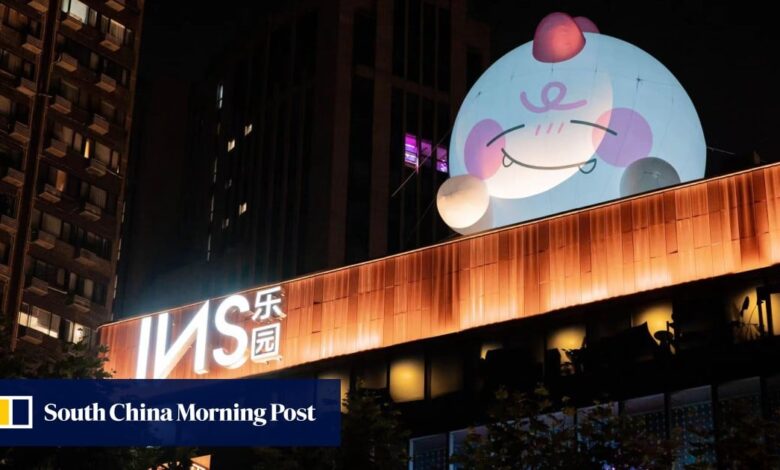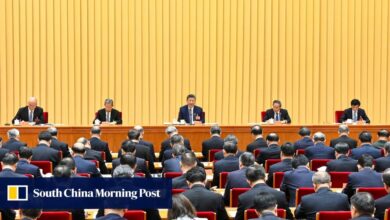Shanghai’s all-in price party complex draws young throngs despite economic jitters

A complex in the heart of Shanghai that combines an esports arena with six nightclubs, a range of restaurants and a comedy club is luring crowds of young locals and tourists – despite a general slump in consumer spending – thanks to a “for-everyone” attitude and a reasonable, all-in price.
The 20,000-square-metre INS (“Into Nothing Serious”) complex is meant to offer an experience like an international music festival, according to founder and chairman Dino Ying Shu-ling, who is also the founder of one of China’s most successful gaming companies Hero Games and esports group VSPO.
“Shanghai is relatively developed, and many young people here are well travelled and have been to various music festivals abroad,” Ying told the Post. “I wanted to create a place like that in Shanghai, where you get one ticket and can experience everything. A space where everyone feels equal.”
The largest space in the complex, which opened in June 2023, is an esports arena that hosts a string of competitions every month. By nightfall when competitions have ended, the stage disappears and within minutes the space transforms into a live music bar.
Founded in 2016 by Ying and his partners, VSPO now organises more than 4,000 esports competitions a year. It counts Savvy Games Group, a unit of Saudi Arabia’s Public Investment Fund, as a key shareholder after a US$265 million investment in February 2023.
Riding off the success of his esports companies, Ying wanted to launch something new, and landed on the idea of bringing esports and his love for music culture together.
The project took seven years to complete and, in addition to the cost of the property, included an investment of more than US$100 million for renovations, some of which came from Ying personally.
Ying likens INS to Hong Kong’s LKF, referring to the central party district Lan Kwai Fong. Like that famous area, INS lets partygoers move from watching live music to raising the roof in a hip hop joint to dancing in a techno club to grabbing a late-night nosh.
Where INS differs from LKF is in the cost of a night out.
Ying and his partners deliberately sought to maintain a majority stake in INS, which allows them to cohesively operate the separate clubs and offer a one entry fee system of 288 yuan (US$40), which allows visitors to access any of the six clubs and enjoy included drinks at each establishment.

Like the name entails, Ying wanted INS to be a carefree place that welcomes everyone.
“Young people and tourists may experience a lot of stress when going out these days, Ying said. “They don’t know how much a night may cost, but this makes it easier.”
The affordable pricing has been a key selling point allowing INS to attract thousands of young people every night, and comes at a moment when retail consumption in Shanghai is at an all-time low.
Chinese consumers, disappointed by cloudy economic prospects and reduced income, have grown more cautious in how they spend their money.
This predicament also rings true among tourists, who may be only visiting for a few days but want to experience nightlife in the city. Ying believes the simplicity of the concept makes INS attractive. Visitors can pay and enter when they arrive without booking and they can budget accurately with the simple single entry fee.
“Tourists love it, young people love it and wealthy customers can also enjoy the experience by booking a table,” Ying said. “Everybody is very equal.”

Rent accounts for less than 10 per cent of INS’s revenue, and the rest is operating income from drinks and tickets.
Ying is confident in the model and plans to open another complex in Chengdu, combining a hotel, esports arena and night clubs. It is set to open in late 2025.
“People want to have a fun time when they go out, but sometimes need to know local people to have fun,” he said. “But at INS, you don’t have to know anyone. You don’t necessarily have to spend a lot of money. You buy a ticket and have fun.”
Source link



